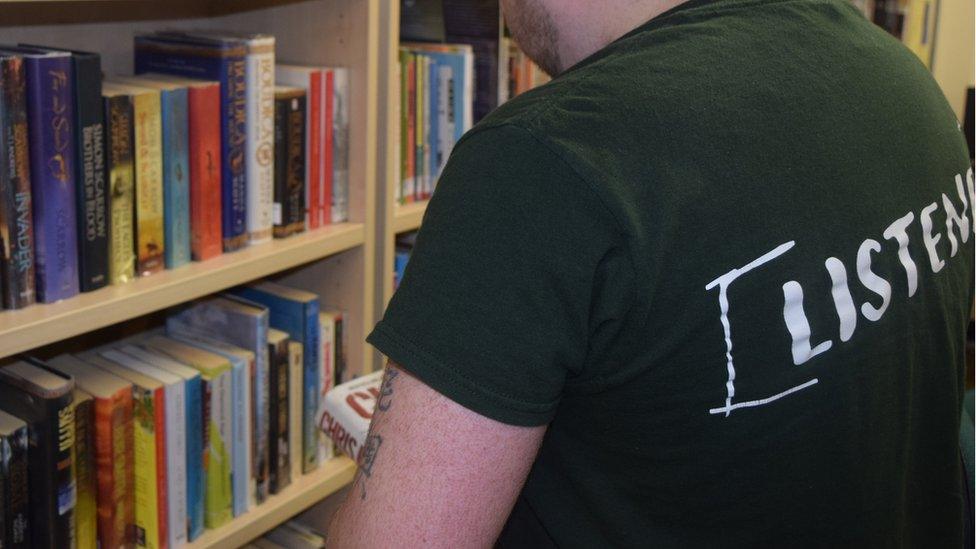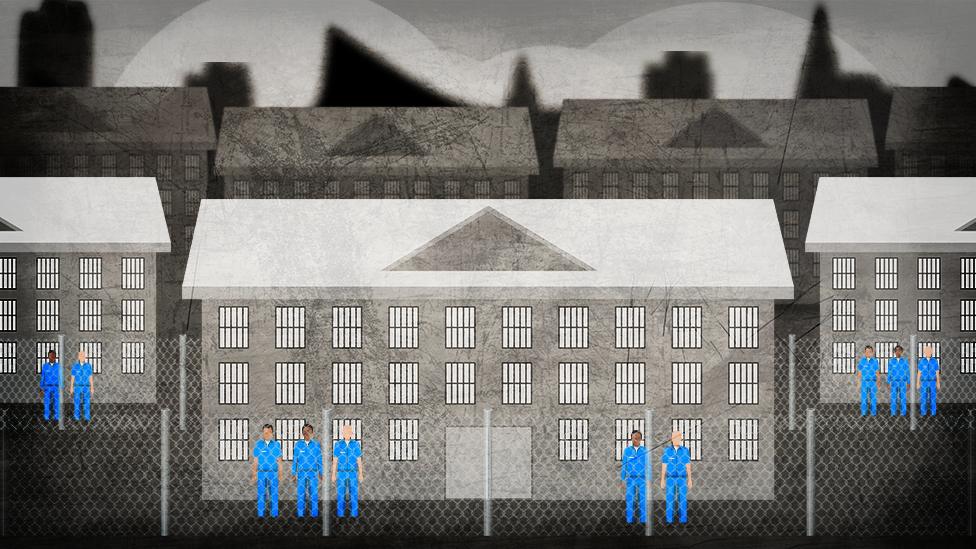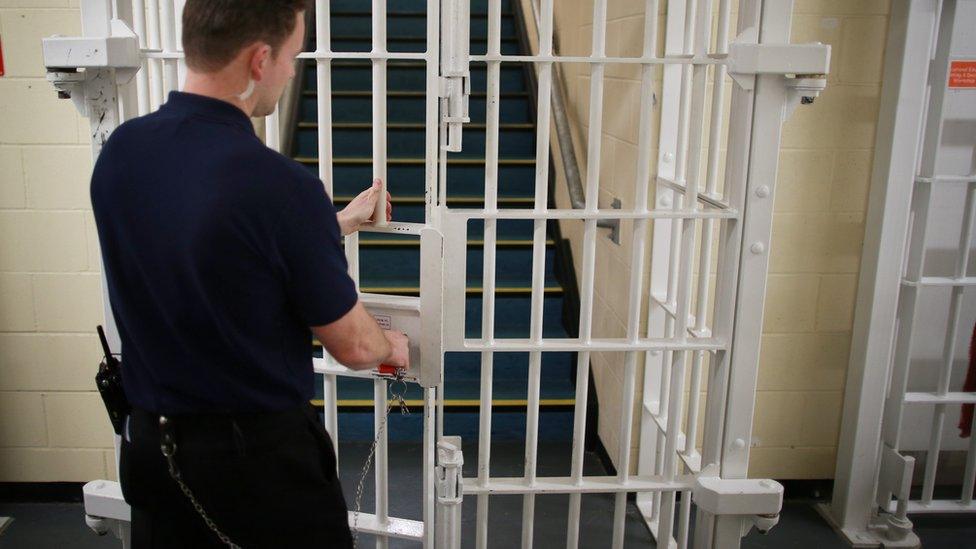The prisoners who train as Samaritans in jail
- Published

As part of a series of features to coincide with the opening of the UK's new super-prison HMP Berwyn - now one of Europe's largest jails - we look at the work being done to reduce prison suicides where prisoners try to help fellow inmates deal with life in jail.
As he walks along the corridor in HMP Swansea Steve* looks like any other prisoner.
But one thing marks him apart. While other prisoners have regulation blue t-shirts his is dark green.
Across the back it says one word in clear white letters: Listener.
He is one of a handful of prisoners with special dispensation to wear these t-shirts as he volunteers in a unique role in the prison.
Swansea prison has a team of in-house Samaritans on-call 24 hours a day in case someone at the prison needs to talk.
Last year there were 119 self-inflicted deaths in prisons in England and Wales - 29 more than the previous year and the highest number since records began in 1978.
There was also a record high of 37,784 self-harm incidents, according to figures from the Ministry of Justice.
The Listener scheme started 25 years ago in Swansea prison after two prisoners took their own lives in a year. One was a 15-year-old on remand, charged with stealing a handbag.
Up until this point Samaritans would 'wing walk' at certain times for people to approach if they wanted to talk.
But after the teen's suicide, Swansea Samaritans increased their visits and installed a phone line directly to the organisation from the prison, called the 'red phone'.
They then started training a group of prisoners to act as Samaritans within the jail. The group called themselves the Swansea Listeners - and a new scheme was born.
There are now teams of Listeners in almost every prison in the UK, with an increasing number in the Republic of Ireland.
In 2015, there were 89,752 face-to-face meetings between Listeners and prisoners.
These could vary from those involving prisoners who are having problems maintaining relationships with people on the outside, to those with suicidal thoughts.
It is entirely confidential with Listeners given the same intensive training as Samaritans. But with one important difference - rather than lending an ear over the phone, they do it face-to-face.

The idea is prisoners are always able to speak to someone if they are feeling depressed or lonely, as long as there are enough guards on duty to facilitate the meeting.
John Phillips, branch director of Swansea Samaritans, said: "A prisoner can ask a prison guard to call out a Listener and, if the guard thinks that prisoner genuinely needs a visit, that guard will find out which Listener is on duty and arrange for that Listener to be brought to the prisoner who has requested it to have a private talk.
"It might be the Listener is on a different wing of the prison. Then the guard will arrange for them to be brought to the prisoner requesting the visit."
Prisoners apply to become a Listener or are recommended by prison staff. The Samaritans say there are no benefits or incentives and they need to be willing to be on call day and night.
By the end of 2015 there were 1,803 prisoners volunteering as Listeners across the UK.

Since leaving prison former Listener Jacob Lee has set up a company which aims to link ex-offenders with jobs
Jacob Hill, 24, from Leeds, released from prison last April, was one of them.
He said the sense of helping others was the most important thing:
"I wanted to support others and you feel like you are making a difference and in that place it is hard, you don't get to make a difference in prison, and volunteering with the Listeners gives you that chance," he says.
Hill, an entrepreneur who who had founded a business while at university, was jailed for dealing Class A and Class B drugs at a music festival after falling into £17k debt.
He volunteered as a Listener in HMP Wealstun in Wetherby, Leeds, when he was moved there in September 2015.
"There was always a need for the Listeners," he says. "It gives people a life-line. Many might not have the phone credit to speak to their families, or know how to talk to them about it.
"They can come to us about anything, some might be missing their family, others regretted the actions that led to them spending time inside."
Since his release Hill has started up Offploy which aims to link ex-offenders with jobs.
He said: "It was the Listener scheme that gave me a real feeling of purpose, many would say the same."
There can be frustrations, the Samaritans point out, when a prison officer is not available to facilitate a meeting with a Listener.
But as an inquiry into deaths in custody in the last year is under way, the government says that, among other measures to reduce self harm in prisons, it is providing support to the Listener scheme and extra funding to the Samaritans.
- Published28 February 2017

- Published26 January 2017

- Published26 January 2017